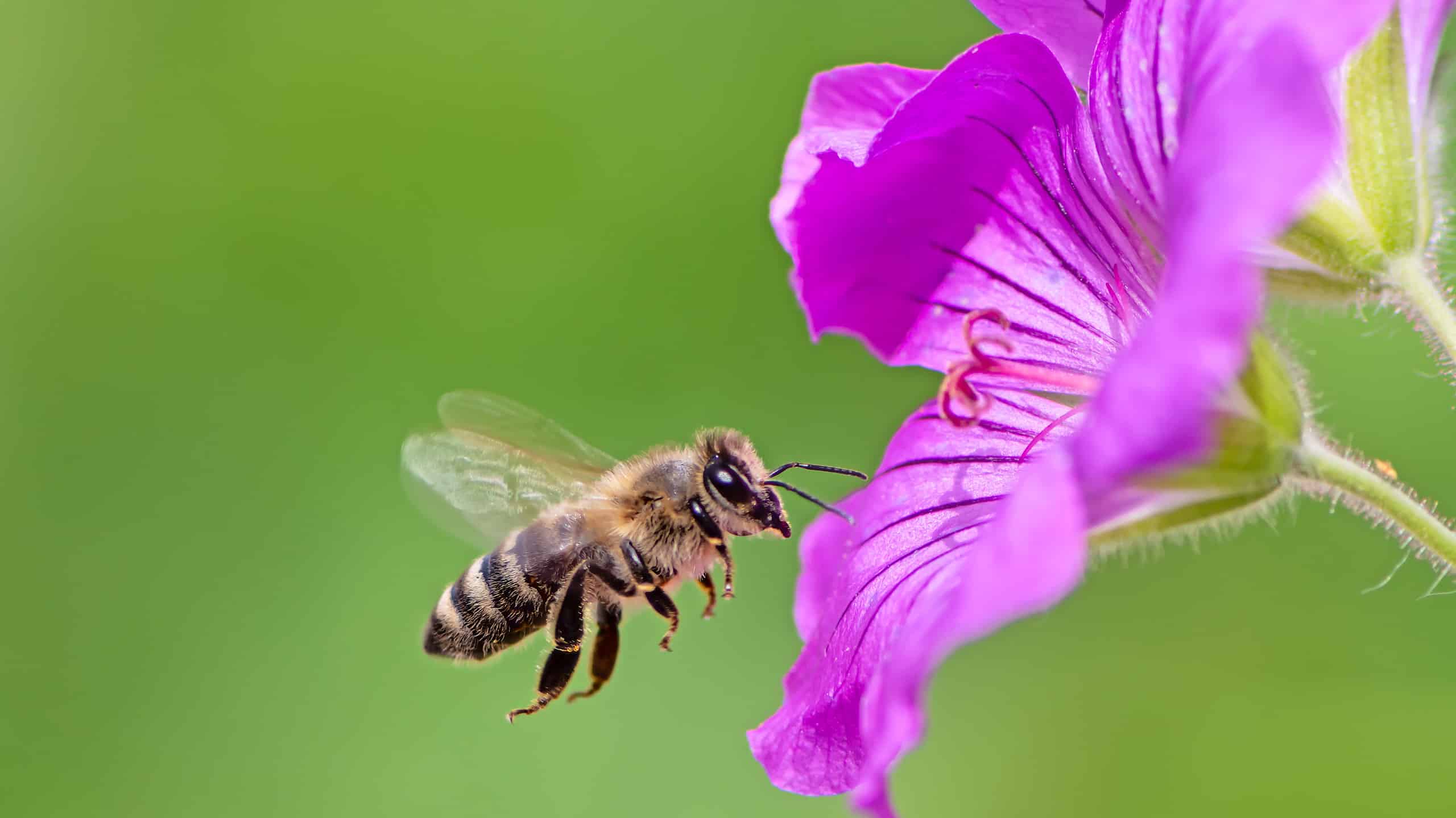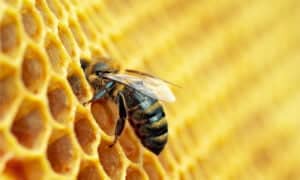There are over 20,000 bee species in the world. This article covers the honey bee species and their fascinating sense of smell. Honey bees are extremely important pollinators that are crucial to the production of fruits and vegetables.
There are many incredible things about bees, like their ability to fly up to 15 miles per hour. Remarkably, they’re also able to remember human faces and flowers that they’ve visited. But the most interesting thing about bees is their keen sense of smell. It’s about 100 times stronger than humans, and they can smell some crazy things that we can’t like cancer and even bombs.
#1 Bomb-Sniffing Bees
Bees are a prime candidate for sniffing out bombs because they’re pretty unnoticeable to the untrained eye. They can also move quickly and cover a lot of ground in a short time period. Bees have an amazing sense of smell that was harnessed by scientists to detect explosives. The project was called the Stealthy Insect Sensor Project, and it was led by military scientists in the early 2000s.
Scientists gave the bees food while exposing them to the smell of explosives, so they would associate it with a reward. This trained the bees to stick out their proboscis if they smell a bomb, expecting that there will be a food reward. As funny as it sounds, trained bees are placed on very small harnesses and put inside cartridges. Then, scientists inject air into the chamber and watch through a camera to see the bees’ reaction. If the bee smells any amount of explosives, it will stick out its’ proboscis. The best part of it all is that it only takes one morning to train an entire hive of bees! After spending two days working to sniff out bombs, the bees are set free to return to the hive and live in peace.
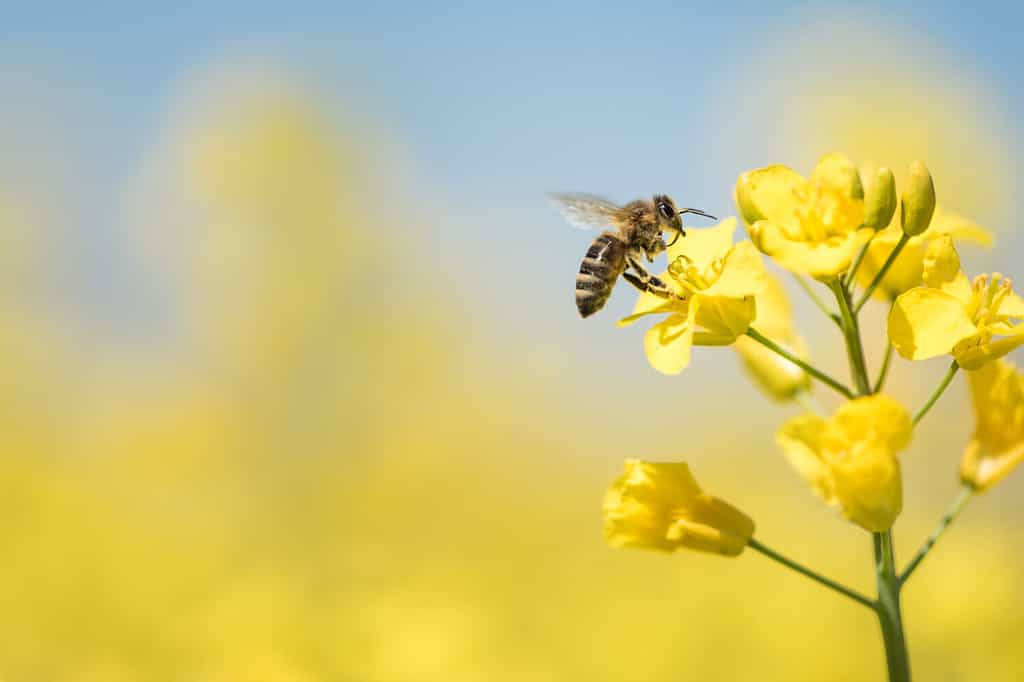
Honey bees have an amazing sense of smell for much more than just nectar.
©thka/Shutterstock.com
Modern Bees
In the early 2020s, researchers in Croatia and a few other countries began using bees and drones to detect landmines. It’s difficult to keep track of bees that are flying across an area with mines, but using drones makes it easier. The drones take pictures and videos of the bees and scientists are able to review the footage to discover possible landmine locations. There are tens of thousands of landmines estimated to have remained in Bosnia, Herzegovina, and Croatia after the Balkans War. Using bees and drones to find these areas can help keep citizens safe.
#2 Bees Can Smell Cancer
Bees are great for helping doctors because they are easy to train in just a few minutes. They respond quickly to rewards. Just like they have learned to associate a food reward with the smell of bombs, bees have also been taught to recognize the smell of cancer when it’s linked to food.
Once the bees are trained, they are released into a chamber where they wait. The patient will blow into a part of the chamber, and if the bees smell a cancerous tumor, they will fly toward the smell. Bees are able to detect multiple types of lung, skin, and pancreatic cancer, as well as tuberculosis and diabetes.
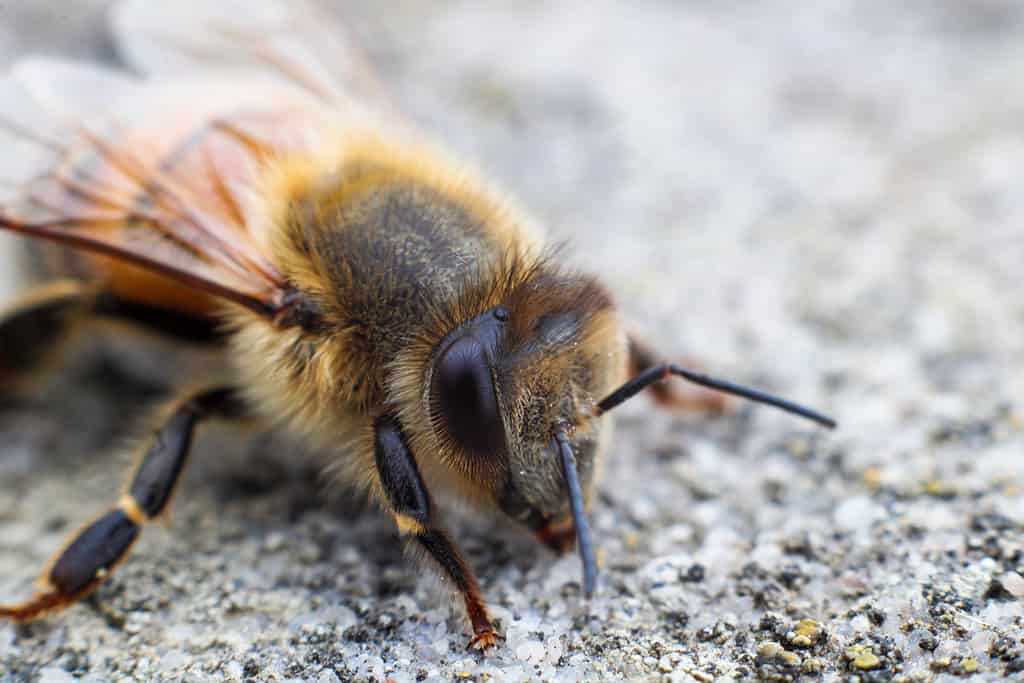
A bee can be trained to detect cancer in just a few minutes.
©iStock.com/D-Steinmeyer
#3 Drugs
Bees have been trained on how to detect heroin and cocaine by researchers at the University of Cologne. Researchers claim that the bees will be able to replace dogs for drug and weapon detection at airports in the future. This is really innovative because it suggests bees can also work with police offers to replace police dogs. Bees can cover an area in a shorter amount of time and more effectively than dogs can. They can work longer hours and cost very little compared to police dogs. The study showed that an entire colony of bees could search an area of around 19 square miles. As long as the bees are covered in fluorescent powder, they can be detected by drones. With all of these benefits, there’s no question that bees are a great choice for assisting police offers and airport security.
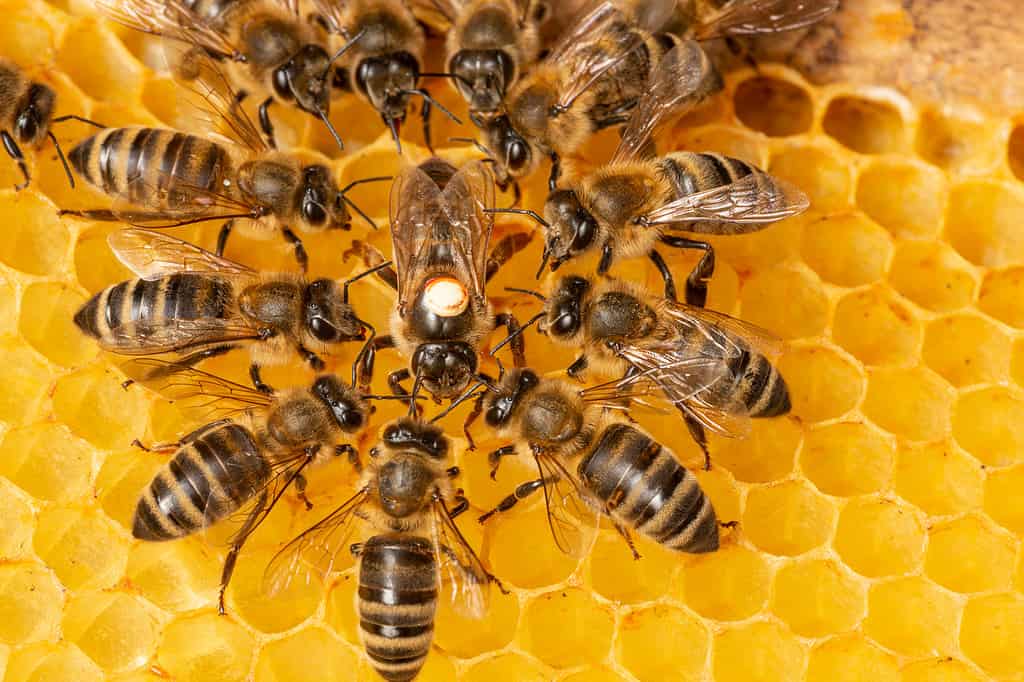
An entire colony of bees can search an area of around 19 square miles.
©Kuttelvaserova Stuchelova/Shutterstock.com
#4 Fear
Bees can smell fear in humans and different animals. They do this by smelling the pheromones that are excreted when we are afraid. Those pheromones tell the bees that there is a possible threat. If they smell fear pheromones being excreted, they pass on the message to the rest of the hive. They excrete pheromones of their own to the colony as they re-enter the hive. Detecting fear in other animals helps bees to prepare for any threats that are nearby.
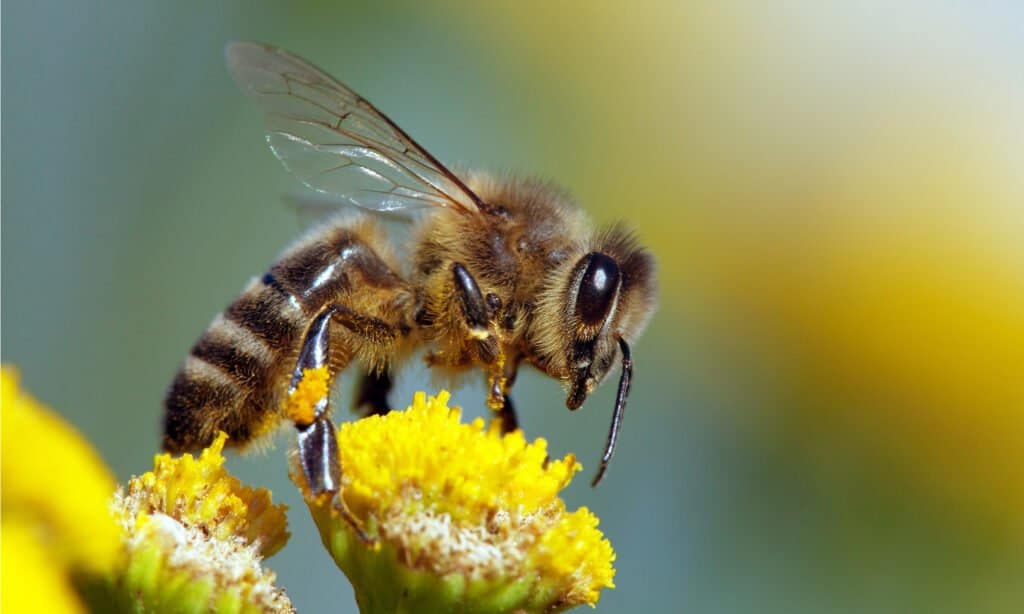
Honey bees can detect fear pheromones in humans and animals.
©Daniel Prudek/Shutterstock.com
Thank you for reading! Have some feedback for us? Contact the AZ Animals editorial team.

